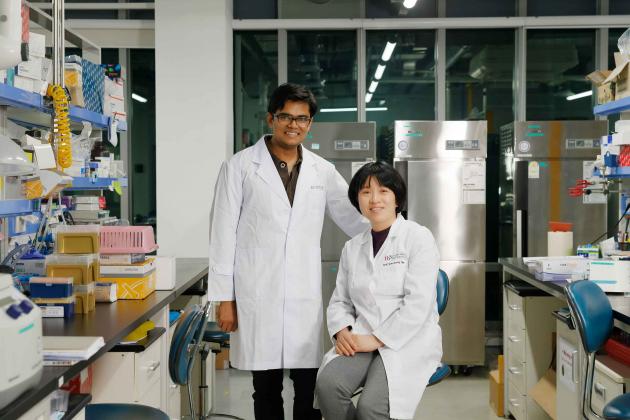Researchers at the Institute for Basic Science (IBS) have developed a technique that can quickly diagnose cancer with only a small amount of fluids.

The research team at IBS developed a platelet chip, which captures nanoparticles containing cellular information in plasma to diagnose cancer. Many cells in a person’s body exchange extracellular vesicles (EVs) and communicate with each other.
For cells, EVs is a kind of letter that conveys news.
It is for this reason that various teams have conducted studies to diagnose cancer development and metastasis by analyzing EVs emitted from cancer cells. However, among the many EVs, there was a limit to isolating selectively the EVs derived from cancer cells.
To address such problems, the IBS researchers looked at the platelets, which are strictly related to cancer cells. Cancer cells surround themselves by platelets to conceal their identity and move to other places through the blood. Also, platelets are known to help cancer cells to cling on to the sites after they travel, according to the institute.
Given the unique interaction between cancer cells Evs and platelets, the researchers devised a diagnostic system that could easily capture cancer cell-derived EVs using platelet membranes. They first produced a platelet chip by fixing a platelet membrane on the bottom of a microfluidic chip. Since the cancer cells that have been interacting with the platelets in the body bind to the surface of the platelet chip, the chip allowed to detect EVs derived from cancer cells selectively.
Injection of 1 μL (microliter) of plasma from cancer patients and healthy persons into the platelet chip confirmed that a large amount of EVs in the plasma of cancer patients compared to average people.
In the metastatic cancer cell assay, the team detected more EVs than in the non-cancer cell assay. The research suggested the possibility of diagnosing cancer development and metastasis based on the amount of EVs caught on the platelet chip.
“It is significant that the platelet mimicked the platelet-cancer cell affinity in the body and detected EVs from cancer cells,” said Professor Cho Yoon-kyung, a group leader who participated in the study. “Even though plasma was used without any complicated treatment, EVs derived from cancer cells were detected from a tiny sample.”
Sumit Kumar, the lead author of the study, also said, “Most of the EVs-based cancer detection technologies developed so far have been based on the principle of detecting EVs by reacting with antibodies specific to cancer.”
Unlike antibody-based diagnostic techniques that correspond to a single disease, the platelet chip has the advantage of being able to diagnose various types of cancer, he added.
Advanced Functional Materials published the results of the study.

